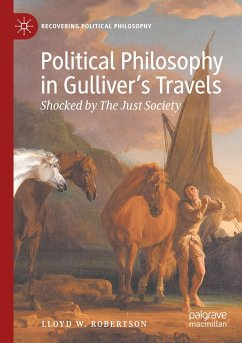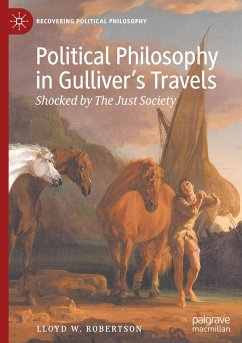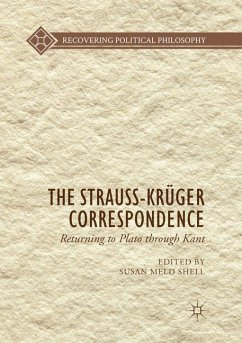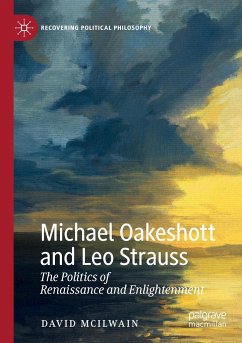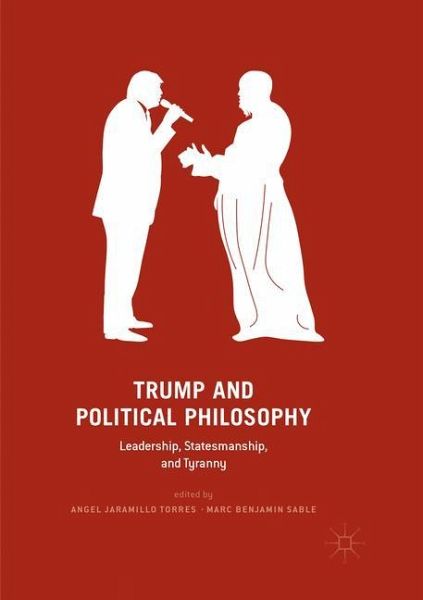
Trump and Political Philosophy
Leadership, Statesmanship, and Tyranny
Herausgegeben: Jaramillo Torres, Angel; Sable, Marc Benjamin
Versandkostenfrei!
Versandfertig in 6-10 Tagen
22,99 €
inkl. MwSt.

PAYBACK Punkte
11 °P sammeln!
This book aims to recover from ancient and modern thinkers valuable arguments about statesmanship, leadership, and tyranny which illuminate reassessments of political science and practice after the election of Donald Trump. Like almost everyone else, contemporary political scientists were blind-sided by the rise of Trump. No one expected a candidate to win who repeatedly violated both political norms and the conventional wisdom about campaign best practices. Yet many of the puzzles that Trump's rise presents have been examined by the great political philosophers of the past. For example, it wo...
This book aims to recover from ancient and modern thinkers valuable arguments about statesmanship, leadership, and tyranny which illuminate reassessments of political science and practice after the election of Donald Trump. Like almost everyone else, contemporary political scientists were blind-sided by the rise of Trump. No one expected a candidate to win who repeatedly violated both political norms and the conventional wisdom about campaign best practices. Yet many of the puzzles that Trump's rise presents have been examined by the great political philosophers of the past. For example, it would come as no surprise to Plato that by its very emphasis on popularity, democracy creates the potential for tyranny via demagoguery. And, perhaps no problem is more alien to empirical political science than asking if statesmanship entails virtue or if so, in what that virtue consists: This is a theme treated by Plato, Aristotle, and Machiavelli, among others. Covering a range of thinkers such as Confucius, Plutarch, Kant, Tocqueville, and Deleuze, the essays in this book then seek to place the rise of Trump and the nature of his political authority within a broader institutional context than is possible for mainstream political science.




